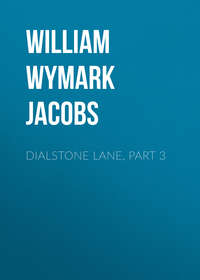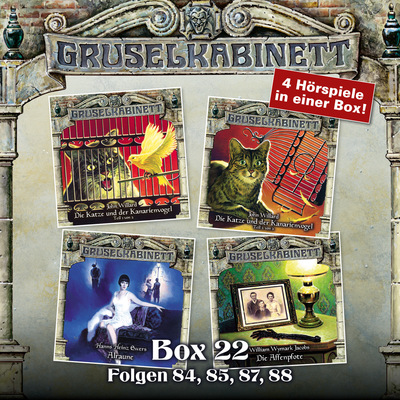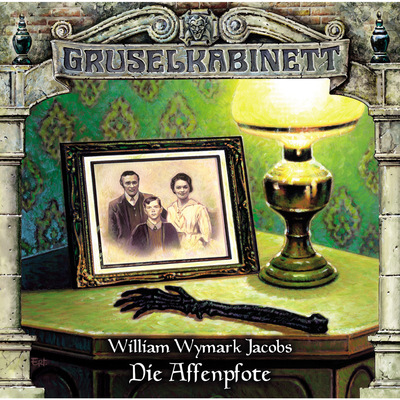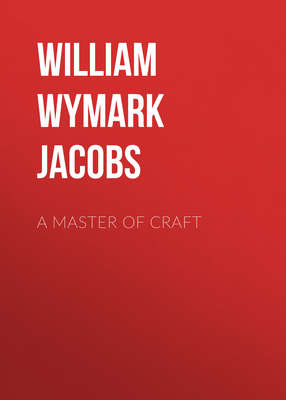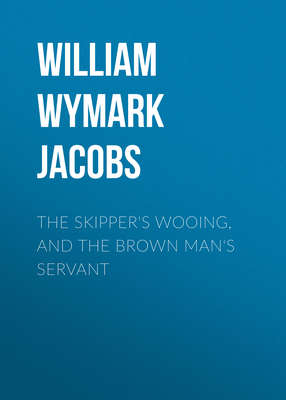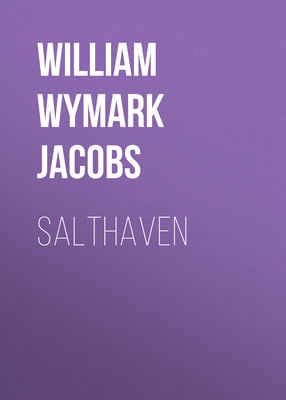Kitabı oku: «Dialstone Lane, Part 3», sayfa 3
Before they had gone a hundred yards they were wet through, but Miss Drewitt, holding her skirts in one hand and shivering at every flash, ran until they brought up at a tall gate, ornamented with barbed wire, behind which stood the shed.
The gate was locked, and the wire had been put on by a farmer who combined with great ingenuity a fervent hatred of his fellow-men. To Miss Drewitt it seemed insurmountable, but, aided by Mr. Tredgold and a peal of thunder which came to his assistance at a critical moment, she managed to clamber over and reach the shed. Mr. Tredgold followed at his leisure with a strip of braid torn from the bottom of her dress.
The roof leaked in twenty places and the floor was a puddle, but it had certain redeeming features in Mr. Tredgold's eyes of which the girl knew nothing. He stood at the doorway watching the rain.
"Come inside," said Miss Drewitt, in a trembling voice. "You might be struck."
Mr. Tredgold experienced a sudden sense of solemn pleasure in this unexpected concern for his safety. He turned and eyed her.
"I'm not afraid," he said, with great gentleness.
"No, but I am," said Miss Drewitt, petulantly, "and I can never get over that gate alone."
Mr. Tredgold came inside, and for some time neither of them spoke. The rattle of rain on the roof became less deafening and began to drip through instead of forming little jets. A patch of blue sky showed.
"It isn't much," said Tredgold, going to the door again.
Miss Drewitt, checking a sharp retort, returned to the door and looked out. The patch of blue increased in size; the rain ceased and the sun came out; birds exchanged congratulations from every tree. The girl, gathering up her wet skirts, walked to the gate, leaving her companion to follow.
Approached calmly and under a fair sky the climb was much easier.
"I believe that I could have got over by myself after all," said Miss Drewitt, as she stood on the other side. "I suppose that you were in too much of a hurry the last time. My dress is ruined."
She spoke calmly, but her face was clouded. From her manner during the rapid walk home Mr. Tredgold was enabled to see clearly that she was holding him responsible for the captain's awkward behaviour; the rain; her spoiled clothes; and a severe cold in the immediate future. He glanced at her ruined hat and the wet, straight locks of hair hanging about her face, and held his peace.
Never before on a Sunday afternoon had Miss Drewitt known the streets of Binchester to be so full of people. She hurried on with bent head, looking straight before her, trying to imagine what she looked like. There was no sign of the captain, but as they turned into Dialstone Lane they both saw a huge, shaggy, grey head protruding from the small window of his bedroom. It disappeared with a suddenness almost startling.
"Thank you," said Miss Drewitt, holding out her hand as she reached the door. "Good-bye."
Mr. Tredgold said "Good-bye," and with a furtive glance at the window above departed. Miss Drewitt, opening the door, looked round an empty room. Then the kitchen door opened and the face of Mr. Tasker, full of concern, appeared.
"Did you get wet, miss?" he inquired.
Miss Drewitt ignored the question. "Where is Captain Bowers?" she asked, in a clear, penetrating voice.
The face of Mr. Tasker fell. "He's gone to bed with a headache, miss," he replied.
"Headache?" repeated the astonished Miss Drewitt. "When did he go?"
"About 'arf an hour ago," said Mr. Tasker; "just after the storm. I suppose that's what caused it, though it seems funny, considering what a lot he must ha' seen at sea. He said he'd go straight to bed and try and sleep it off. And I was to ask you to please not to make a noise."
Miss Drewitt swept past him and mounted the stairs. At the captain's door she paused, but the loud snoring of a determined man made her resolve to postpone her demands for an explanation to a more fitting opportunity. Tired, wet, and angry she gained her own room, and threw herself thoughtlessly into that famous old Chippendale chair which, in accordance with Mr. Tredgold's instructions, had been placed against the wall.
The captain started in his sleep.
CHAPTER XI
Mr. Chalk's anxiety during the negotiations for the purchase of the Fair Emily kept him oscillating between Tredgold and Stobell until those gentlemen fled at his approach and instructed their retainers to make untruthful statements as to their whereabouts. Daily letters from Captain Brisket stated that he was still haggling with Mr. Todd over the price, and Mr. Chalk quailed as he tried to picture the scene with that doughty champion.
Three times at the earnest instigation of his friends, who pointed out the necessity of keeping up appearances, had he set out to pay a visit to Dialstone Lane, and three times had he turned back half-way as he realized the difficult nature of his task. As well ask a poacher to call on a gamekeeper the morning after a raid.
Captain Bowers, anxious to see him and sound him with a few carefully- prepared questions, noted his continued absence with regret. Despairing at last of a visit from Mr. Chalk, he resolved to pay one himself.
Mr. Chalk, who was listening to his wife, rose hastily at his entrance, and in great confusion invited him to a chair which was already occupied by Mrs. Chalk's work-basket. The captain took another and, after listening to an incoherent statement about the weather, shook his head reproachfully at Mr. Chalk.
"I thought something must have happened to you," he said. "Why, it must be weeks since I've seen you."
"Weeks?" said Mrs. Chalk, suddenly alert.
"Why, he went out the day before yesterday to call on you."
"Yes," said Mr. Chalk, with an effort, "so I did, but half-way to yours I got a nail in my shoe and had to come home."
"Home!" exclaimed his wife. "Why, you were gone two hours and thirty-five minutes."
"It was very painful," said Mr. Chalk, as the captain stared in open-eyed astonishment at this exact time-keeping. "One time I thought that I should hardly have got back."
"But you didn't say anything about it," persisted his wife.
"I didn't want to alarm you, my dear," said Mr. Chalk.
Mrs. Chalk looked at him, but, except for a long, shivering sigh which the visitor took for sympathy, made no comment.
"I often think that I must have missed a great deal by keeping single," said the latter. "It must be very pleasant when you're away to know that there is somebody at home counting the minutes until your return."
Mr. Chalk permitted himself one brief wondering glance in the speaker's direction, and then gazed out of window.
"There's no companion like a wife," continued the captain. "Nobody else can quite share your joys and sorrows as she can. I've often thought how pleasant it must be to come home from a journey and tell your wife all about it: where you've been, what you've done, and what you're going to do."
Mr. Chalk stole another look at him; Mrs. Chalk, somewhat suspicious, followed his example.
"It's a pity you never married, Captain Bowers," she said, at length; "most men seem to do all they can to keep things from their wives. But one of these days–"
She finished the sentence by an expressive glance at her husband. Captain Bowers, suddenly enlightened, hastened to change the subject.
"I haven't seen Tredgold or Stobell either," he said, gazing fixedly at Mr. Chalk.
"They—they were talking about you only the other day," said that gentleman, nervously. "Is Miss Drewitt well?"
"Quite well," said the captain, briefly. "I was beginning to think you had all left Binchester," he continued; "gone for a sea voyage or something."
Mr. Chalk laughed uneasily. "I thought that Joseph wasn't looking very well the last time I saw you," he said, with an imploring glance at the captain to remind him of the presence of Mrs. Chalk.
"Joseph's all right," replied the other, "so is the parrot."
Mr. Chalk started and said that he was glad to hear it, and sat trying to think of a safe subject for conversation.
"Joseph's a nice parrot," he said at last. "The parrot's a nice lad, I mean."
"Thomas!" said Mrs. Chalk.
"Joseph-is-a-nice-lad," said Mr. Chalk, recovering himself. "I have often thought–"
The sentence was never completed, being interrupted by a thundering rat-tat-tat at the front door, followed by a pealing at the bell, which indicated that the visitor was manfully following the printed injunction to "Ring also." The door was opened and a man's voice was heard in the hall-a loud, confident voice, at the sound of which Mr. Chalk, with one horrified glance in the direction of Captain Bowers, sank back in his chair and held his breath.
"Captain Brisket," said the maid, opening the door.
The captain came in with a light, bustling step, and, having shaken Mr. Chalk's hand with great fervour and acknowledged the presence of Captain Bowers and Mrs. Chalk by two spasmodic jerks of the head, sat bolt-upright on the edge of a chair and beamed brightly upon the horrified Chalk.
"I've got news," he said, hoarsely.
"News?" said the unfortunate Mr. Chalk, faintly.
"Ah!" said Brisket, nodding. "News! I've got her at last."
Mrs. Chalk started.
"I've got her," continued Captain Brisket, with an air of great enjoyment; "and a fine job I had of it, I can tell you. Old Todd said he couldn't bear parting with her. Once or twice I thought he meant it."
Mr. Chalk made a desperate effort to catch his eye, but in vain. It was fixed in reminiscent joy on the ceiling.
"We haggled about her for days," continued Brisket; "but at last I won. The Fair Emily is yours, sir."
"The fair who?" cried Mrs. Chalk, in a terrible voice. "Emily who? Emily what?"
Captain Brisket turned and regarded her in amazement.
"Emily who?" repeated Mrs. Chalk.
"Why, it's—" began Brisket.
"H'sh!" said Mr. Chalk, desperately. "It's a secret."
"It's a secret," said Captain Brisket, nodding calmly at Mrs. Chalk.
Wrath and astonishment held her for the moment breathless. Mr. Chalk, caught between his wife and Captain Bowers, fortified himself with memories of the early martyrs and gave another warning glance at Brisket. For nearly two minutes that undaunted mariner met the gaze of Mrs. Chalk without flinching.
"A—a secret?" gasped the indignant woman at last, as she turned to her husband. "You sit there and dare to tell me that?"
"It isn't my secret," said Mr. Chalk, "else I should tell you at once."
"It isn't his secret," said the complaisant Brisket.
Mrs. Chalk controlled herself by a great effort and, turning to Captain Brisket, addressed him almost calmly. "Was it Emily that came whistling over the garden-wall the other night?" she inquired.
"Whis–?" said the hapless Brisket, making a noble effort. He finished the word with a cough and gazed with protruding eyes at Mr. Chalk. The appearance of that gentleman sobered him at once.
"No," he said, slowly.
"How do you know?" inquired Mrs. Chalk.
"Because she can't whistle," replied Captain Brisket, feeling his way carefully. "And what's more, she wouldn't if she could. She's been too well brought up for that."
He gave a cunning smile at Mr. Chalk, to which that gentleman, having decided at all hazards to keep the secret from Captain Bowers, made a ghastly response, and nodded to him to proceed.
"What's she got to do with my husband?" demanded Mrs. Chalk, her voice rising despite herself.
"I'm coming to that," said Brisket, thoughtfully, as he gazed at the floor in all the agonies of composition; "Mr. Chalk is trying to get her a new place."
"New place?" said Mrs. Chalk, in a choking voice.
Captain Brisket nodded. "She ain't happy where she is," he explained, "and Mr. Chalk—out o' pure good-nature and kindness of heart—is trying to get her another, and I honour him for it."
He looked round triumphantly. Mr. Chalk, sitting open-mouthed, was regarding him with the fascinated gaze of a rabbit before a boa-constrictor. Captain Bowers was listening with an appearance of interest which in more favourable circumstances would have been very flattering.
"You said," cried Mrs. Chalk—"you said to my husband: 'The fair Emily is yours.'"
"So I did," said Brisket, anxiously—"so I did. And what I say I stick to. When I said that the—that Emily was his, I meant it. I don't say things I don't mean. That isn't Bill Brisket's way."
"And you said just now that he was getting her a place," Mrs. Chalk reminded him, grimly.
"Mr. Chalk understands what I mean," said Captain Brisket, with dignity. "When I said 'She is yours,' I meant that she is coming here."
"O-oh!" said Mrs. Chalk, breathlessly. "Oh, indeed! Oh, is she?"
"That is, if her mother'll let her come," pursued the enterprising Brisket, with a look of great artfulness at Mr. Chalk, to call his attention to the bridge he was building for him; "but the old woman's been laid up lately and talks about not being able to spare her."
Mrs. Chalk sat back helplessly in her chair and gazed from her husband to Captain Brisket, and from Captain Brisket back to her husband. Captain Brisket, red-faced and confident, sat upright on the edge of his chair as though inviting inspection; Mr. Chalk plucked nervously at his fingers. Captain Bowers suddenly broke silence.
"What's her tonnage?" he inquired abruptly, turning to Brisket.
"Two hundred and for–"
Captain Brisket stopped dead and, rubbing his nose hard with his forefinger, gazed thoughtfully at Captain Bowers.
"The Fair Emily is a ship," said the latter to Mrs. Chalk.
"A ship!" cried the bewildered woman. "A ship living with her invalid mother and coming to my husband to get her a place! Are you trying to screen him, too?"
"It's a ship," repeated Captain Bowers, sternly, as he sought in vain to meet the eye of Mr. Chalk; "a craft of two hundred and something tons. For some reason—best known to himself—Mr. Chalk wants the matter kept secret."
"It—it isn't my secret," faltered Mr. Chalk.
"Where's she lying?" said Captain Bowers.
Mr. Chalk hesitated. "Biddlecombe," he said, at last.
Captain Brisket laughed noisily and, smacking his leg with his open hand, smiled broadly upon the company. No response being forthcoming, he laughed again for his own edification, and sat good-humouredly waiting events.
"Is this true, Thomas?" demanded Mrs. Chalk.
"Yes, my dear," was the reply.
"Then why didn't you tell me, instead of sitting there listening to a string of falsehoods?"
